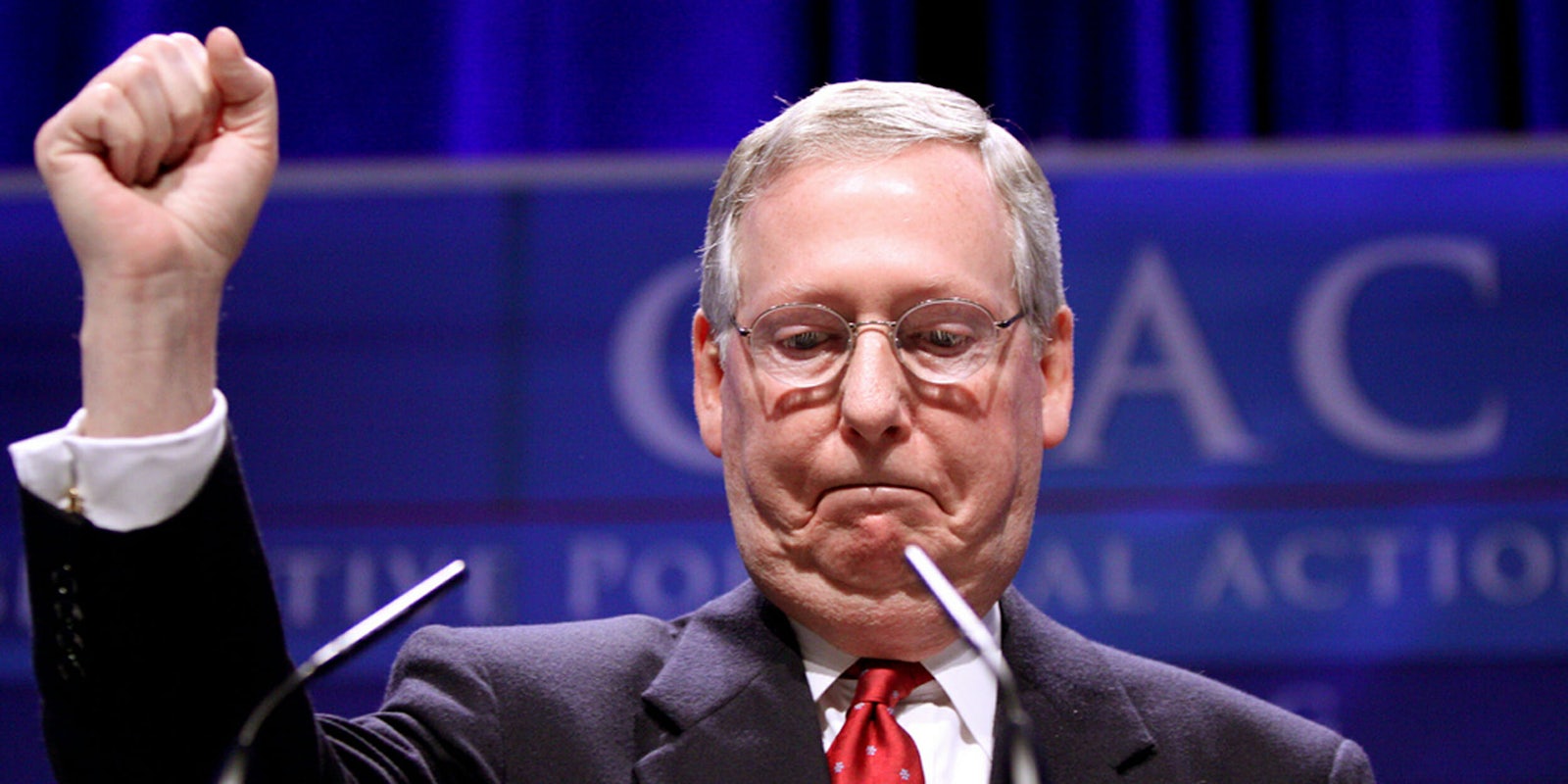The Senate’s version of a healthcare bill to replace the Affordable Care Act will leave 22 million fewer people with health insurance, according to the non-partisan Congressional Budget Office—just one million fewer people than the House’s version of the bill released last month.
The CBO said 22 million fewer people will have health insurance by 2026 if the Senate’s bill becomes law in a report issued Monday afternoon.
More immediately, 15 million fewer Americans are estimated to be uninsured under the legislation compared to the current law, the Affordable Care Act, the CBO said.
The report also found that premiums are expected to fall over time, but would rise at first. Premiums are expected to rise by 20 percent and 10 percent in 2018 and 2019, but by 2026—the time where millions of less Americans would have health insurance—premiums are expected to fall approximately 20 percent.
The CBO’s score is likely to cause headaches for Senate Republicans as they decide whether or not to vote in favor of a bill that will likely affect their constituents. The Senate is using rules that only require them to get 50 votes to pass the bill, however several Republicans—for a variety of reasons—have already said they would not vote for the bill in its current form.
The Senate version of the bill, dubbed the “Better Care Reconciliation Act of 2017” would overhaul the Medicaid program, slashing the amount of money going to lower-income Americans and eliminate the requirement that companies with more than 50 workers provide health benefits to employees. The bill would also cut taxes on wealthy Americans, which were used to help fund the expansion of healthcare coverage. It also strips federal funding of Planned Parenthood for one year.
“By 2026, among people under age 65, enrollment in Medicaid would fall by about 16 percent and an estimated 49 million people would be uninsured, compared with 28 million who would lack insurance that year under current law,” the CBO wrote.
In May, the CBO said 23 million fewer Americans would have health insurance under the American Health Care Act, the version of the healthcare overhaul crafted by the House of Representatives. The Better Care Reconciliation Act, the Senate version, was drafted after the House version of the bill.


